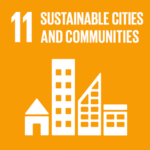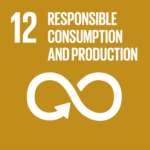Sustainable aviation fuel reduces greenhouse gas emissions by up to 80% compared to fossil jet fuel use

Case - Published 15.12.2020
Neste has developed a sustainable solution for airlines that is readily available to reduce the direct carbon emissions of flying. The company’s product, Neste MY Sustainable Aviation Fuel, is made from sustainably sourced, renewable waste and residue raw materials. In the neat form and over the life cycle, the fuel’s use can reduce up to 80%* of greenhouse gas emissions compared to fossil jet fuel use.
Solution to make air travel more sustainable
Neste is the world’s largest producer of renewable diesel and sustainable aviation fuel refined from waste and residue raw materials, introducing renewable solutions also to the polymers and chemicals industries. The company is committed to supporting its customers to meet their ambitious climate and carbon neutrality targets and reduce greenhouse gas emissions.
On a mission to transform air travel more sustainably, the aviation sector is constantly looking for innovative ways to lower carbon emissions. The aviation sector is committed to reducing its net CO2 emissions by 2050 to half from 2005 levels. Therefore, airlines, but also other aviation companies need to be looking into different solutions that can contribute towards these goals. For example, front runner airlines using Neste’s sustainable aviation fuel can contribute to a more sustainable future for the aviation industry.
Neste MY Sustainable Aviation Fuel is compatible with existing jet engines
Neste MY Sustainable Aviation Fuel gives an immediate solution for reducing the direct carbon emissions of flying and it can be used at the moment without any modifications. It works as a drop-in fuel with existing aircraft engines and airport infrastructure and requires no extra investment. Therefore, prior to use, Neste MY Sustainable Aviation Fuel is blended with fossil jet fuel and is then certified to meet ASTM (an international standards organization) jet fuel specifications.
Neste’s proprietary NEXBTL technology allows the use of almost any waste fat or vegetable oil in the production of renewable fuels. Neste can use more than 10 different sustainably-produced raw materials to produce its renewable products. An extensive portfolio of globally-sourced raw materials provides flexibility, as it allows the company to respond to the needs of different markets and customers.
For sustainable aviation fuel purposes, the feed stock base includes only sustainably sourced renewable waste and residues, such as used cooking oil and animal waste fat. The fuel is always of premium quality, regardless of the raw material used in its production.

Neste MY Sustainable Aviation Fuel is currently available and in use
Neste produces its renewable products at the company’s refineries in Porvoo Finland, Rotterdam the Netherlands and Singapore. At the moment, Neste’s sustainable aviation fuel is produced in Porvoo and distributed to airports around the world.
Neste’s sustainable aviation fuel annual capacity is currently 100,000 tons. With Neste’s Singapore refinery expansion on the way, and with possible additional investment into the Rotterdam refinery, Neste targets to have the capacity to produce some 1.5 million tons of sustainable aviation fuel annually by 2023. The fuel is already available, used in the market and supplied to various commercial airlines, business aviation customers and at various airports in Europe and North America.
Neste MY Sustainable Aviation Fuel contributes to the UN’s Sustainable Development Goals
With Neste’s renewable and circular solutions, the company contributes to the implementation of the United Nations’ Sustainable Development Goals (SDGs). Neste creates value for society by helping its customers reduce climate emissions by developing cleaner solutions for transportation and aviation, as well as bio-based solutions from renewable raw materials for the chemical and plastics industries.
Specifically, Neste MY Sustainable Aviation Fuel contributes to SDG 11 Sustainable Cities and Communities by helping airports around the world to become more sustainable. Neste contributes to SDG 12 Responsible Consumption and Production, by sharing information on sustainability practices and reporting, on how the company ensures sustainability in the supply chain and how it uses waste and residues to produce renewable fuels (e.g. from used cooking oil).
Neste has also set ambitious climate targets, which contributes to SDG 13 Climate Action. The company is committed to reducing customers’ climate emissions by 20 million tons annually by 2030 and reaching carbon neutral production by 2035. Reducing customer’s climate emissions is one of the benefits that Neste’s sustainable aviation fuel provides.
Partnerships are needed to enable the sustainable growth for the industry
Partnerships are at the heart of sustainable business at Neste and therefore, Neste contributes to the SDG 17 Partnerships for the Goals. Partnerships across the aviation sector are needed to enable sustainable growth for the industry. Sustainable aviation fuel, for example, already plays a significant role in some airlines’ sustainability strategies and a number of leading airlines such as Lufthansa, KLM, American Airlines, Alaska Airlines, JetBlue Airways and ANA are using Neste’s sustainable aviation fuel on their flights. Most recently, in December 2020, Neste also announced that it invested in AFS, fuel storage company to enable supply of sustainable aviation fuel to airline customers at the Amsterdam Airport Schiphol.
*) The method used to calculate life cycle emissions and emission reduction complies with the EU Renewable Energy Directive (2009/28/EC).
More information: www.neste.com/aviation
Agenda 2030
Specifically, Neste MY Sustainable Aviation Fuel contributes to SDG 11 Sustainable Cities and Communities by helping airports around the world to become more sustainable. Neste contributes to SDG 12 Responsible Consumption and Production, by sharing information on sustainability practices and reporting, on how the company ensures sustainability in the supply chain and how it uses waste and residues to produce renewable fuels (e.g. from used cooking oil). Neste contributes to the SDG 17 Partnerships for the Goals: partnerships across the aviation sector are needed to enable sustainable growth for the industry.




